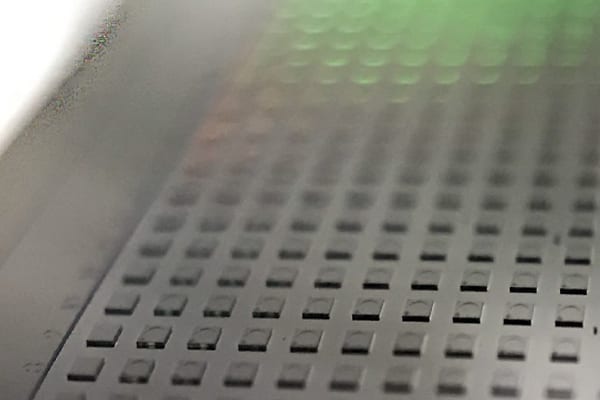Researchers who work with real viruses to develop a vaccine, medications or better diagnostic tests place themselves at considerable risk – and when the virus in question is highly pathogenic like COVID-19, investigating, testing or developing these can be very dangerous.
But this hazard can be minimized or eliminated with the development by Weizmann Institute of Science researchers of many miniaturized artificial cells on a silicon chip.
Prof. Roy Bar-Ziv, staff scientist Dr. Shirley Shulman Daube, Dr. Ohad Vonshak (a former research student in Bar-Ziv’s lab) and current research student Yiftach Divon of the famed institute in Rehovot were able to produce viral parts within artificial cells. Their research was recently published in the prestigious journal Nature Nanotechnology.

Protein factories on a chip: The proteins produced from the DNA in each “cell” self-assemble to make artificial parts of a virus ( Weizmann Institute of Science)
The cells are micrometer-sized compartments etched into the tiny chip. At the bottom of each compartment, the scientists attached DNA strands and packed them densely. The edges of the artificial cells were carpeted with receptors that can capture the proteins produced within the cells.
The scientists flooded their cells with everything needed to make proteins – molecules and enzymes needed to read the DNA information and translate it into proteins. Then, with no further human intervention, the receptor carpet trapped one of the proteins produced in the bottoms of the cells, with the rest of the viral proteins binding to one another, producing structures that the scientists had earlier “programmed” into the system. In this case, they created assorted small parts of a virus that infects bacteria (a bacteriophage).
“We discovered,” said Bar-Ziv, “that we can control the assembly process – both the efficiency and the final products – through the design of the artificial cells. This included the cells’ geometric structure and the placement and organization of the genes. These all determine which proteins will be produced and, down the line, what will be made from these proteins once they are assembled.”
Vonshak added that “since these are miniaturized artificial cells, we can place a great many of them on a single chip. We can alter the design of various cells, so that diverse tasks are performed at different locations on the same chip.”
The features of the system developed at the Weizmann Institute – including the ability to produce different small parts of a single virus at once, could give scientists around the globe a new tool for evaluating tests, drugs and vaccines against that virus. “And because the artificial parts – even if they faithfully reproduced parts of the virus – do not include the use of actual viruses, they would be especially safe from beginning to end,” added Divon.
“Another possible application,” said Shulman Daube, “might be the development of a chip that could rapidly and efficiently conduct thousands of medical tests simultaneously.”
Also participating in the research were Stefanie Förste, Dr. Sophia Rudorf and Prof. Reinhard Lipowsky from the Max Planck Institute of Colloids and Interfaces in Potsdam, Germany, and David Garenne and Prof. Vincent Noireaux from the University of Minnesota.



